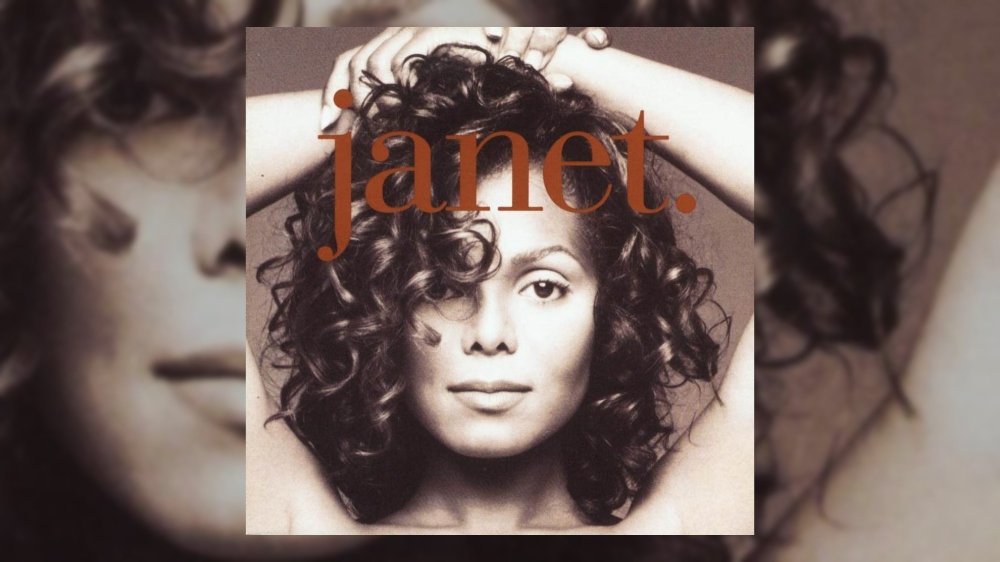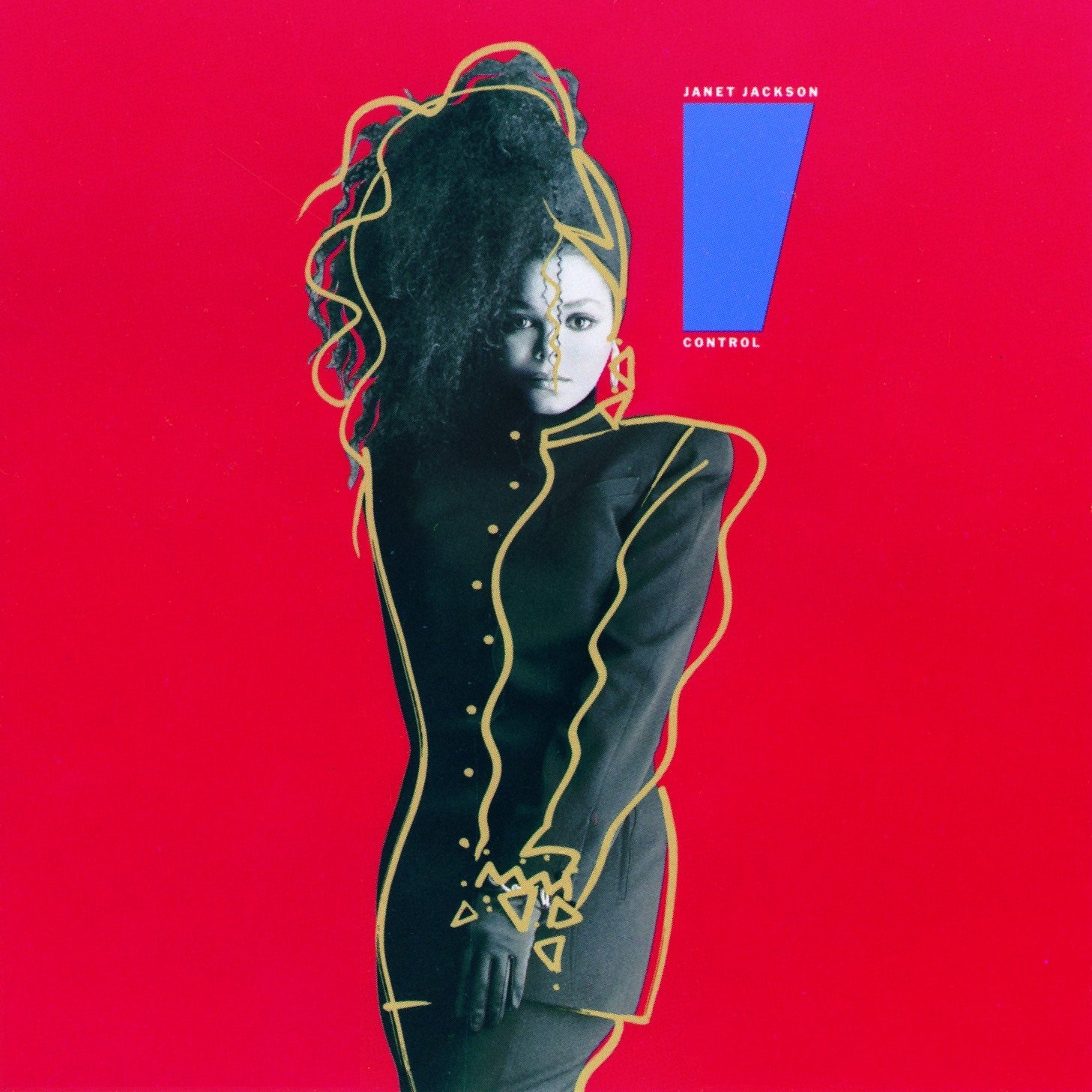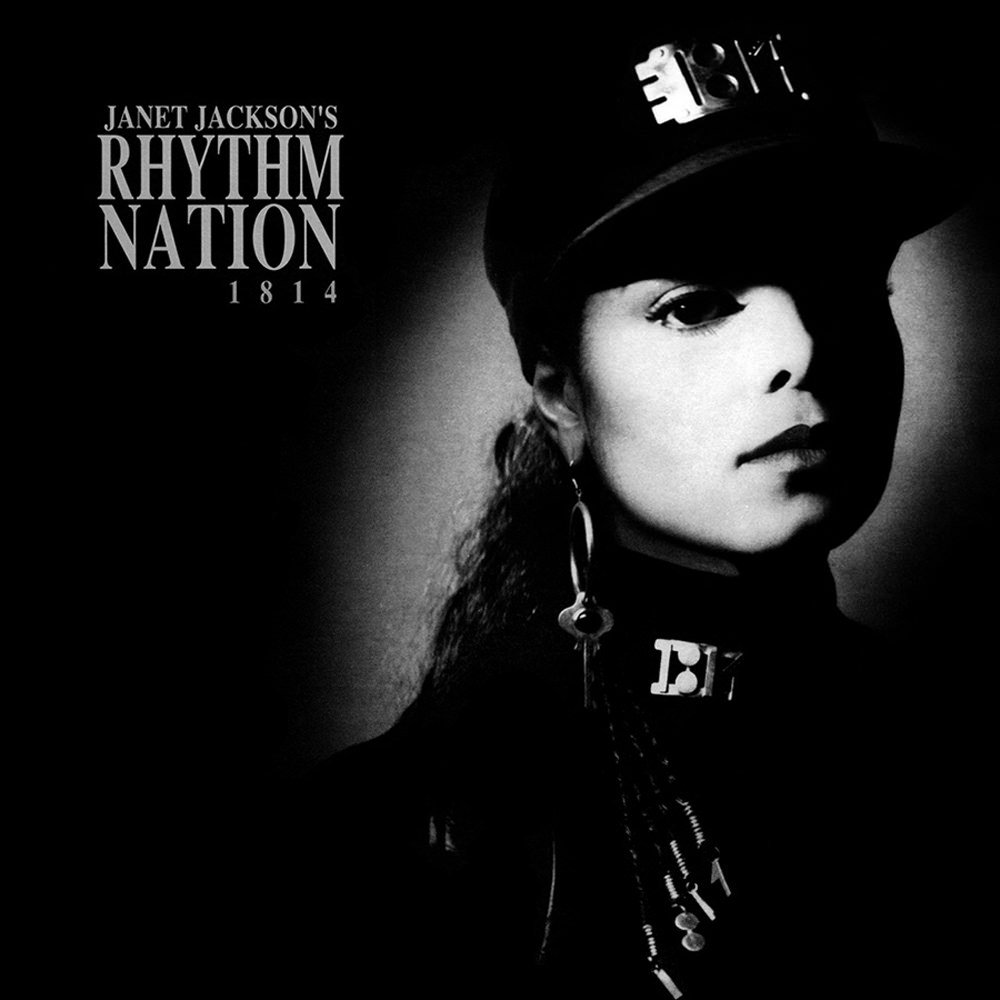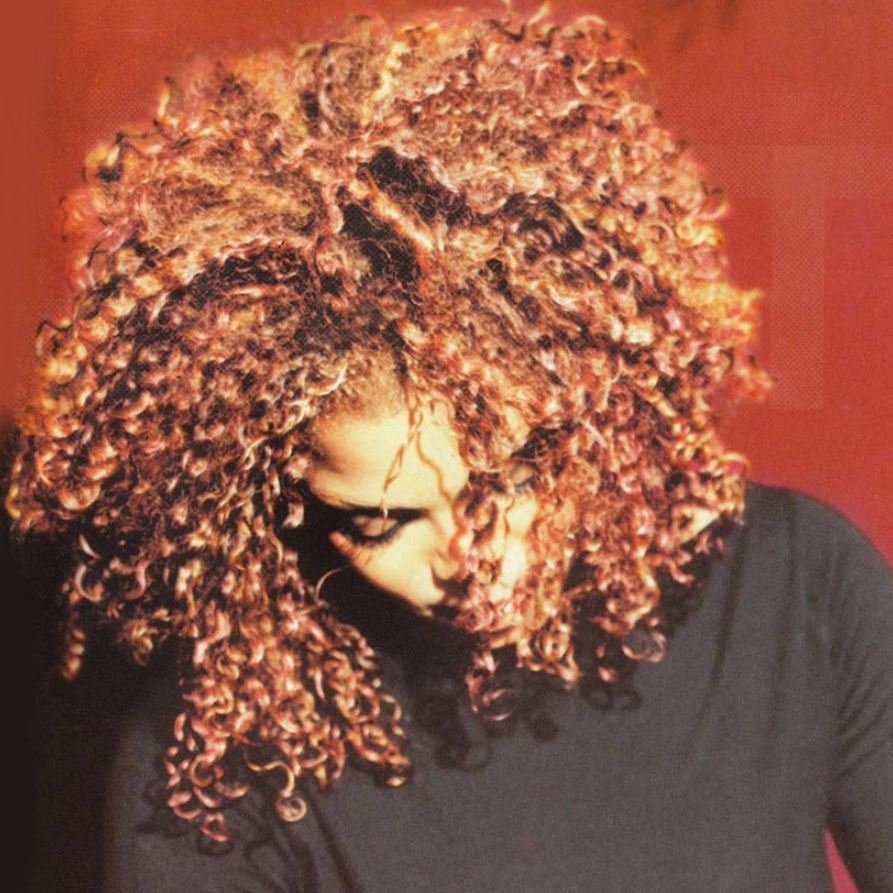Happy 30th Anniversary to Janet Jackson’s fifth studio album janet., originally released May 18, 1993.
If they’re doing it right, album covers should tell the story of an artist’s development. Janet Jackson’s album covers—at least through 1997’s The Velvet Rope—most definitely reflect her development from coy, shy ingénue to empowered familial chain-breaker to the militaristic activism of Janet Jackson’s Rhythm Nation 1814 (1989).
By the time janet (commonly stylized as janet.) surfaced in May 1993, the cover explained more than adequately that any shyness had vanished entirely from Miss Jackson’s artistic expression. Tousled curls tumbled in front of a doe-eyed come hither look that could lure a blind priest to turn their back on God and, though the shot featured only arms, neck and shoulders, it was clear that her days of hiding behind black boiler suits and baseball caps were long gone.
The cover of Rolling Stone magazine and the gatefold version of the artwork revealed much more and thus ensured the clarity of the message: the shackles were off—nothing was off limits. Despite the enormous success of predecessor Rhythm Nation, there was still a lingering feeling from some that she’d only got that far by dint of her surname and the help of Jimmy Jam and Terry Lewis. Perhaps with that in mind, Jackson took a much greater stake in proceedings this time around, writing all of the lyrics and co-producing the arrangements with Jam and Lewis.
In the years prior to the release Jackson became the subject of a bidding war to secure her services for record labels. A&M had been her home and wanted to renew their arrangement (unsurprisingly given the enormous success of Rhythm Nation), but others wooed her. She eventually signed with Richard Branson’s Virgin label for what was (at that time) a record-breaking contract valued somewhere in the region of $40 million.
Making her the highest paid musical act in the world, it drew a line under those nepotistic notions and set her up as another member of the club that required only a first name for recognition. It also meant that there would have to be some payback, but in the US alone janet sold nearly 8 million copies and worldwide it reached 14 million. Swift and immediate was the payback.
What marks janet as different from its predecessors is the expanded musical palette served up. Having practically invented New Jack Swing and further established the Minneapolis sound on Control (1986) and Rhythm Nation, Jam & Lewis’ same formula wouldn’t necessarily work in the musical landscape of the time.
A couple of collaborations stand out immediately as compelling and interesting. Chuck D of Public Enemy lends his sonorous, pile-driving vocals to “New Agenda,” while even more intriguing is the presence of Kathleen Battle (an operatic soprano) on “This Time.” But beyond imaginative guests, Jam, Lewis and Jackson created an intimate atmosphere that allows Jackson’s lyrics and vocals to breathe life into their sensual soundscape.
Watch the Official Videos:
On first sight, the track listing reveals 26 songs—a veritable marathon of sensual R&B. But closer inspection finds 14 of these are slight, unnecessary interludes or segues. Other than some (and only some!) of De La Soul’s segues and those on Solange’s A Seat At The Table, I think they never really add anything to an album’s quality. To these decrepit and old-fashioned ears, the impact of an album should come from the dynamic interplay of music and lyric, not from the snippets of studio conversation or random annoyance that these segues often become. It may be harsh, but I’m laying at least some portion of blame at Miss Jackson’s door.
Feeling lighter and baggage-free having relieved myself of that burden, let’s get back to that dynamic interplay of music and lyrics. Nowhere is that more obvious than on the lead single and opening track (discounting one of those pesky segues!) “That’s The Way Love Goes.” Entering the Billboard chart at 14, it went on to reach number 1 and stay there for 8 weeks, becoming the best performing single in the US by any member of the Jackson family. If she’d ever felt obscured by anyone’s shadow, this surely indicated that her time in the sun was ahead of her.
“That’s The Way Love Goes” is a song that is greater than the sum of its parts. Its mid-tempo, James Brown and The Honey Drippers sampling groove manages to go hard and stay cool at the same time, while Jackson’s delicately wanton vocal and lyrics drip with sensuality. As well as offering up the musical MO of the album, it also serves as notice that Janet is not here to fuck about. She implores—in her seductively low-key way—her lover to: “Reach out and feel my body / I’m gonna give you all my love / Ooh sugar don’t you worry / You got me here all night / Just close your eyes and hold on tight.”
Alongside this ridiculously sexy slice of masterful R&B sit countless other infectiously winning songs. There’s the riotous New Jack Swing of “You Want This,” the self-explanatory pulse of “Throb” and the joyous “What I’ll Do.” But nestled in amongst these lie two songs that are among the very best that any Jackson has to offer.
“If” is a pounding, fuzzed-up, nasty-sounding track that drips with the thrill of lust at first sight. The verses paint an intimate picture of what she imagines that she and the object of her imagination get up to: “You on the rise as you’re touching my thighs / And let me know what you like, if you like I’ll go / Down, down, down, down.” Yet the chorus banishes any thought of making the imaginary real, as the thought of infidelity proves a Rubicon not to be crossed: “If I was your woman, the things I’d do to you / But I’m not, so I can’t, then I won’t but if I was your girl.” Evidence that although a desire for sexual release runs through the album, the heart of the family girl remains intact.
The other gem that stands proud is “This Time.” Bristling with hurt and betrayal, it stands as further testament to the chorus of “If”—sexual self-expression may be the name of the game, but not at the expense of her humanity. Gentle acoustic guitar leads the way before the eerie and totally unexpected sound of Kathleen Battle’s operatic vocals float as if by regal decree. And then the beat drops in a moment that is as memorable and spine-tingling as any in Jackson’s extensive and memorable back catalogue.
Enjoying this article? Click/tap on the album covers to explore more about Janet Jackson:
The second half of the album is mainly given over to whispered, breathy ballads. Jackson may not have the strongest voice in the world, but she serves them up with natural aplomb and style. Although “Again” topped the Billboard chart for two weeks late in 1993, its saccharine sound proved too cute for some, but this was the exception to the rule.
Among the rest of the album lies the steamy, sensual sensation “Anytime, Anyplace.” Offering proof, if proof were needed, that a freedom of sexual expression runs through the album, its seductively slow syncopation envelops and whispers sweet nothings of an explicit kind: “In the thundering rain / you stare into my eyes / I can feel your hand / Moving up my thighs / Skirt around my waist / Wall against my face.”
Although this can be characterized as Jackson’s sexual awakening, it should be noted that the vast majority of the scenarios presented are sexual within the confines of a safe, consenting, exclusive adult relationship. There are no Bacchanalian orgies or 23 positions in a one night stand, rather she gives voice to the needs and desires of millions of “ordinary” women in relationships. By voicing them so successfully she enables the same conversations to occur in bedrooms the world over—she empowers as she sings.
It would seem that beneath the surface of the sexual sheen lay the same sweet natured ingénue, albeit one ready to get what she desired. How long that sweetness would last would be revealed on her next album The Velvet Rope (1997). But for now, the sweetness remained allied to a sexual confidence that sent the album into the stratosphere.
LISTEN:
Editor's note: this anniversary tribute was originally published in 2018 and has since been edited for accuracy and timeliness.





